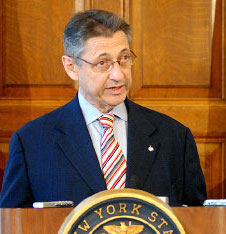
Chazy Hardware had only one electric generator in stock when a 1998 ice storm left much of northern New York state without power for days. The store’s owners found more in Vermont and resold them for a premium to cover its extra costs, little knowing they might run afoul of the law.
New York’s price gouging law, which prohibits “unconscionably excessive” price increases kicked in. But just how much of an increase is “unconscionably excessive” and thereby illegal?
State Attorney General Letitia James launched a rulemaking process in March that might clarify the matter. Although the law itself creates problems, providing more clarity would be an improvement.
Prices play a key role in distributing goods, including during crises. Higher prices discourage hoarding of needed goods and encourage suppliers to provide more to meet demand. If price increases are prohibited, fewer people will get needed emergency supplies.
The law’s problems are exacerbated by its vagueness. It comes into effect during “abnormal disruptions of the market.” The law’s undefined terms are subject to the attorney general’s discretion. Because retailers cannot tell if a price increase would be allowed, meeting consumers’ emergency needs can put them in the state’s regulatory cross-hairs.
Read the full op-ed at Crain’s (Subscription required)



